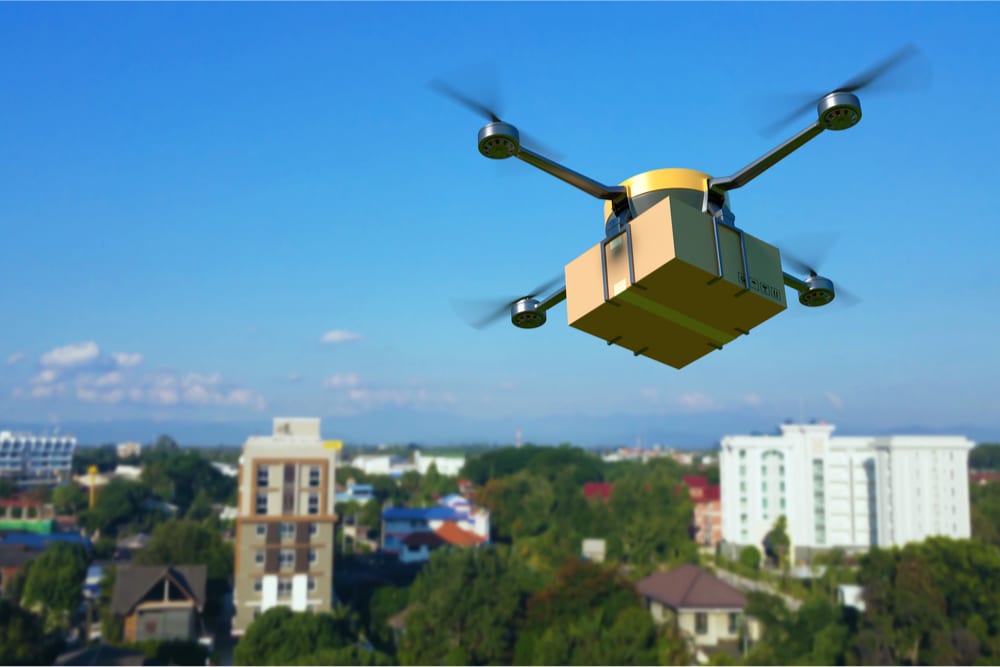Blog entry by Bruce McPherson

The pandemic-driven digital shift is a ready-made moment for new delivery systems like drones. The issue is whether drones are ready for the moment. Questions still abound about privacy and public adoption of the technology, but according to a new report from the World Economic Forum (WEF) the pandemic might be on the verge of producing a “golden age” of drones.
“At the core of greater drone adoption is not significant technological maturation but rather a recognition that the utility of drones outweighs potential risks, such as collision with aircraft or use by bad actors,” says the WEF. “Society has begun to see a benefit from drones. And while the risk equation has not changed, pressure to address an existential threat (COVID-19) combined with a mandate for leadership has opened minds and incentivized decision makers to consider not just the risks, but also the benefits. In other words, government decision makers are being asked — for the first time in some developed economies — to expand what’s possible in response to the crisis.”
There are still cultural and regulatory issues regarding the usage of drones, even as they’re being pressed into service to deliver healthcare supplies to COVID-19 patients and care facilities. For example, during the coronavirus pandemic, drones have been used by police to enforce lockdowns. Drones normally used in agriculture have sprayed disinfectant over cities. In the U.K., drone delivery trials are taking place to carry medical items to the Isle of Wight. Yet, the public jury on drones is still out.
U.S. sentiment on the technology hasn’t been measured recently. German citizens, according to a report in Drone Life, aren’t ready. More than 55 percent oppose the use of delivery drones. Two primary concerns dominate the conversation about integrating drone technology into German communities: safety and environmental impact. Seventy-five percent of respondents fear that delivery drones could lead to accidents causing injuries to people and 79 percent liked them due to the technologies lighter environmental footprint.
“While some argue that drone technology wasn’t mature enough to be trusted at large scale — and cultural questions around privacy, noise and annoyance have hampered the expansion of flights — a societal and governmental shift in evaluating acceptable risk is driving greater implementation,” says the WEF. “With air travel down nearly 90% and dramatically fewer cars on the road due to shelter-in-place orders, the risks drones might present in the air and on the ground are significantly reduced. Meanwhile, pressure has been mounting to streamline drone use to deliver vital goods, support social distancing and enable essential workers to operate with greater efficiency and efficacy.”
UPS drone delivery took a step forward recently when it partnered with leading U.S. drone service providers DroneUp, UPS subsidiary UPS Flight Forward (UPSFF), Virginia’s Center for Innovative Technology (CIT), and Workhorse Group to test drone delivery exhaustively — proving the case for drones to take a role in helping medical professionals respond to COVID-19.
“Many in the public — along with federal, state and local officials — are asking how drones can be used in this time of crisis,” said Tom Walker, DroneUp CEO. “Rather than speculate, it is incumbent upon our industry to conduct operationally-based exercises that produce factual data and lessons learned to ensure we can respond safely, effectively and efficiently when called upon. Data collected now will impact our capabilities beyond the COVID-19 outbreak we are currently facing.”
Amazon’s drone project was slated to start sometime this year. Business Insider reports that an internal memo puts that service for five-pound packages at August 31.
And Google’s Wing project last week became the first in the world to offer a library book drone delivery service. The idea — allowing kids to access titles even when the library was closed due to novel coronavirus — came from Kelly Passek, a Blacksburg, Virginia middle school librarian.
“Access to school library resources is essential for the success of our students,” Passek said in a statement published on the Wing blog. “The MCPS-Wing partnership allows us the most unique way to continue to provide that access so that our students are able to stay engaged with independent reading and continue on their path of success even during this time of social distancing.”
ByPYMNTS